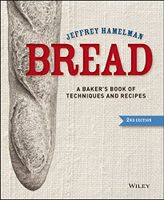Flour
Published 2004
The topic of flour is enormous. Hundreds of pages could be devoted to a discussion of it, and once written, hundreds more could be added. Civilizations have risen around wheat-growing regions; governments have fallen when their ability to guarantee the availability of bread faltered; individuals have made fortunes from manipulations of the grain trade; social injustice stemming from the grain trade has kept thousands of people impoverished. For centuries, in many parts of the world it was bread alone that provided people with the strength to live and to labor. During difficult times, for example in England at the end of the eighteenth century, it took more than 100 percent of the breadwinner’s salary simply to purchase the family’s bread (baker and anthropologist
Become a Premium Member to access this page
Unlimited, ad-free access to hundreds of the world’s best cookbooks
Over 160,000 recipes with thousands more added every month
Recommended by leading chefs and food writers
Powerful search filters to match your tastes
Create collections and add reviews or private notes to any recipe
Swipe to browse each cookbook from cover-to-cover
Manage your subscription via the My Membership page
Advertisement
Advertisement


